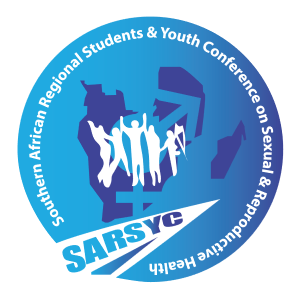

Regional Conference on
Starting in:
The 5th Edition of the Southern Africa Regional Students and Youth Conference (SARSYC V) is scheduled to take place on 17-19 July 2024 in Gaborone, Botswana. This conference serves as a regional platform, bringing together students, young people, policymakers, program implementers, and civic groups.
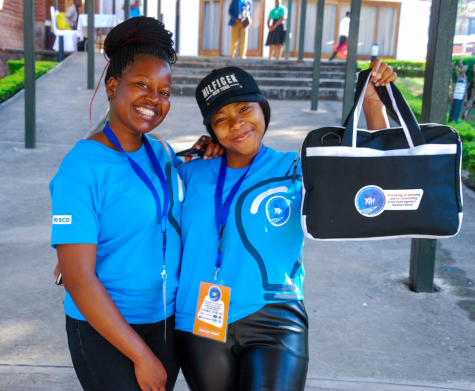

Preserve hard-won gains & deliver on the vision of the ICPD agenda & the SDGs.
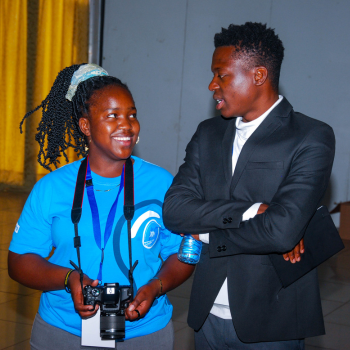
Advancing Equitable Access to Public Health and Education.
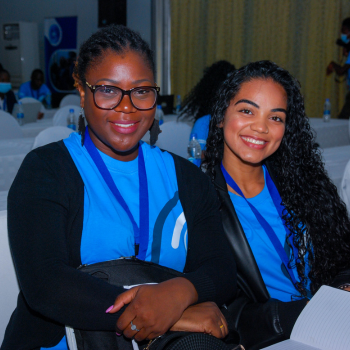
Interconnected approach in addressing challenges faced by young people in the region.
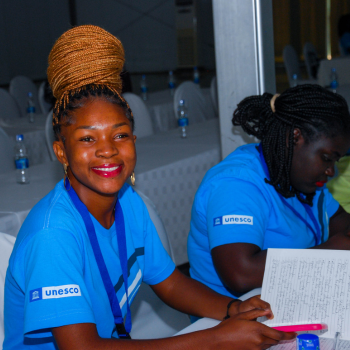
addressing inequalities and promoting equitable access to public health and education.
The 5th edition comes at a time when the globe will be looking at the progress made with the ICPD commitment under the auspice of ICPD30. The timing of the conference allows for a meaningful reflection on the progress made and the challenges that remain.
17 – 19 July 2024 | Gaborone, Botswana.
The African Union’s proclamation of 2023 as the Year of Education comes at a critical time when millions of girls drop out of school in Sub-Saharan Africa due to constraints such as vulnerability to sexual harassment, menstrual health challenges, and expectations of early marriage. These barriers not only disrupt individual lives but also impede the region’s progress.
Addressing this challenge requires transformative solutions that transcend traditional approaches. There is an imperative to ensure that quality education is not merely a privilege but a universally accessible right. To achieve this, young people must engage in comprehensive reflections that scrutinize the gender dynamics within education systems, evaluate the commitments of member states to uphold regional and international educational standards, and explore the critical nexus between education, health, and public health.
The Southern African Regional Students and Youth Conference (SARSYC) is poised to catalyze these vital discussions. As a convening platform, SARSYC will ignite dialogue and foster partnerships aimed at developing educational interventions that are responsive to the emerging challenges within the region. It is through such collaborative efforts that as a region we can forge a future where every young person has the opportunity to learn, grow, and thrive.
The Southern African Regional Students and Youth Conference (SARSYC) is a pivotal forum for addressing critical emerging public health concerns. At the forefront of these is climate change, recognized as the most significant global challenge, which endangers the well-being and very survival of young people across the globe. While this has garnered increasing global attention, the response remains insufficient in mitigating its profound threats.
In Southern Africa, the impacts of climate change are starkly evident, with the region grappling with droughts, catastrophic floods, and erratic weather patterns. These disasters have exacted a heavy toll, claiming numerous lives and undermining the region’s socio-economic stability. Such dire circumstances underscore the urgency for a united and robust response to this existential crisis.
Moreover, the advent of Artificial Intelligence (AI) and digital technology casts a shadow of uncertainty over the region’s youth. Amidst the rapid pace of the digital revolution, there is a growing concern that a significant number of young people risk being left out. The implications for Southern African youth are profound, with potential impacts on their prospects, educational opportunities, and mental well-being. The disruptive influence of AI and digitalization extends to the educational sphere, necessitating a reevaluation of pedagogical approaches and support systems to safeguard the well being of students and youths.
These pressing issues, among others, will be rigorously explored at the SARSYC. The conference aims to foster dialogue, facilitate knowledge exchange, and catalyze collective action, thereby contributing to the shaping of a resilient and equitable public health landscape in the face of these emerging challenges.
In 1994, the International Conference on Population and Development (ICPD) in Cairo, Egypt, marked a defining moment in global development policy. The conference culminated in the adoption of the Programme of Action (PoA), a visionary document that placed human dignity and rights, including reproductive rights, at the heart of sustainable development initiatives.
The ICPD PoA championed the empowerment of women and girls, addressed pervasive inequalities, and safeguarded individual rights, thereby establishing a new paradigm for people-centric development. It has since directed national policies and programs, fostering collaboration among a diverse array of stakeholders.
As we approach ICPD30, the 30th anniversary of this landmark event, it is a time for celebration and introspection. The commemoration serves as a platform to assess the strides made by nations over the past three decades and to articulate a forward-looking vision.
For Southern African countries, which have faced acute population and development challenges, this review holds particular significance. It is an opportunity to evaluate progress, confront persisting issues, and reinvigorate efforts towards achieving the ICPD’s ambitious goals.
The Southern African Regional Students and Youth Conference (SARSYC), with its unique focus on the youth, is poised to play a critical role in this process. SARSYC will leverage the perspectives of Southern Africa’s young people to examine the ICPD’s impact and relevance in today’s context, ensuring that their voices contribute to shaping the future trajectory of population and development discourse.
In the Southern African region, the challenges posed by HIV and tuberculosis (TB) have reverberated across socio-economic institutions, leaving an indelible mark. These not only strain healthcare systems but also cast shadows over economic productivity and social stability. As we navigate the path toward sustainable development, it becomes imperative to confront these communicable diseases head-on. Member states, in collaboration with development partners, have adopted various models and frameworks with a shared goal: to end the epidemics of AIDS and TB by the year 2030. These efforts encompass prevention, treatment, and support, aiming for a comprehensive response. Platforms such as the United Nations High-Level Meeting (UNHLM) provide an opportunity for countries to showcase progress and renew commitments. While progress has been made, the role of youth remains pivotal. Forums that engage young people in dialogue about these public health challenges are essential. Southern African youth face unique disadvantages that contribute to higher HIV incidence rates. Recognizing their potential as future leaders and change-makers is crucial. Youth-led policies and programs must take center stage, ensuring that the next generation actively participates in shaping health outcomes. SARSYC emerges as a beacon of hope—a platform where students and young leaders converge to dissect policies, evaluate the intersections of communicable diseases with other aspects of life, and forge actionable plans. By empowering youth to lead, SARSYC aims to drive meaningful change. It is through collective efforts, informed discussions, and strategic actions that we can combat these pandemics effectively.
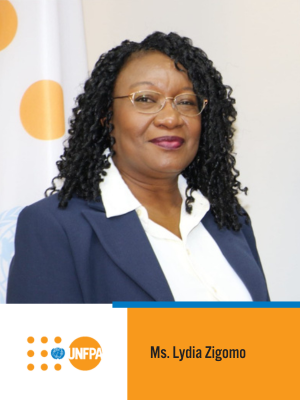
Ms. Lydia Zigomo is the Regional Director for UNFPA, East and Southern Africa.
Ms. Zigomo provides strategic oversight, support and technical expertise to 23 Country Offices and partners in the region, who work on the ground to improve people’s lives by equipping them with policy advice, training and support.
A human rights lawyer and international development and humanitarian leader, Ms. Zigomo has 30 years’ experience in women and children’s rights, constitutional reform, health systems strengthening, sexual and reproductive health, HIV and AIDS, gender justice, women’s economic empowerment and economic justice, including in humanitarian settings.
She previously served with Oxfam International as Global Programmes Director in Nairobi, Kenya, and as Regional Director for the Horn, East and Central Africa. Before this, she was Regional Director in East Africa for Water Aid.
Ms. Zigomo began her career as a solicitor in Harare, Zimbabwe, before moving into the development sector in 1998. She holds a Master’s degree in Civil Liberties and Human Rights Law from the University of Leicester, UK, and a Bachelor of Laws Honours degree from the University of Zimbabwe.
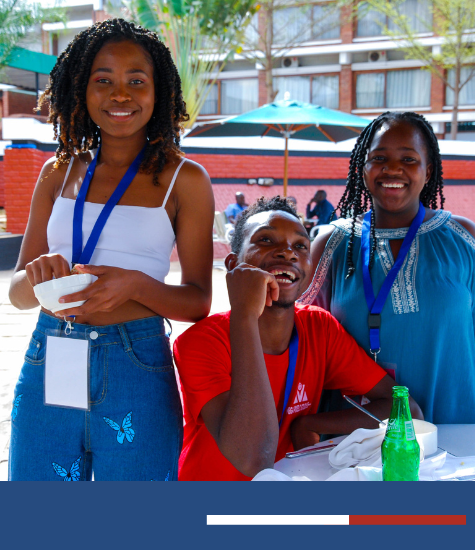
Plot 28295 BelaBele Road,
Gaborone,
South East District,
Botswana
Name: Nontsikelelo Mazinki
Phone: +263775268293
Email: nono@saywhat.org.zw
Name: Hildaberta Rwambiwa
Phone: +263719874484
Email: hilda@saywhat.org.zw